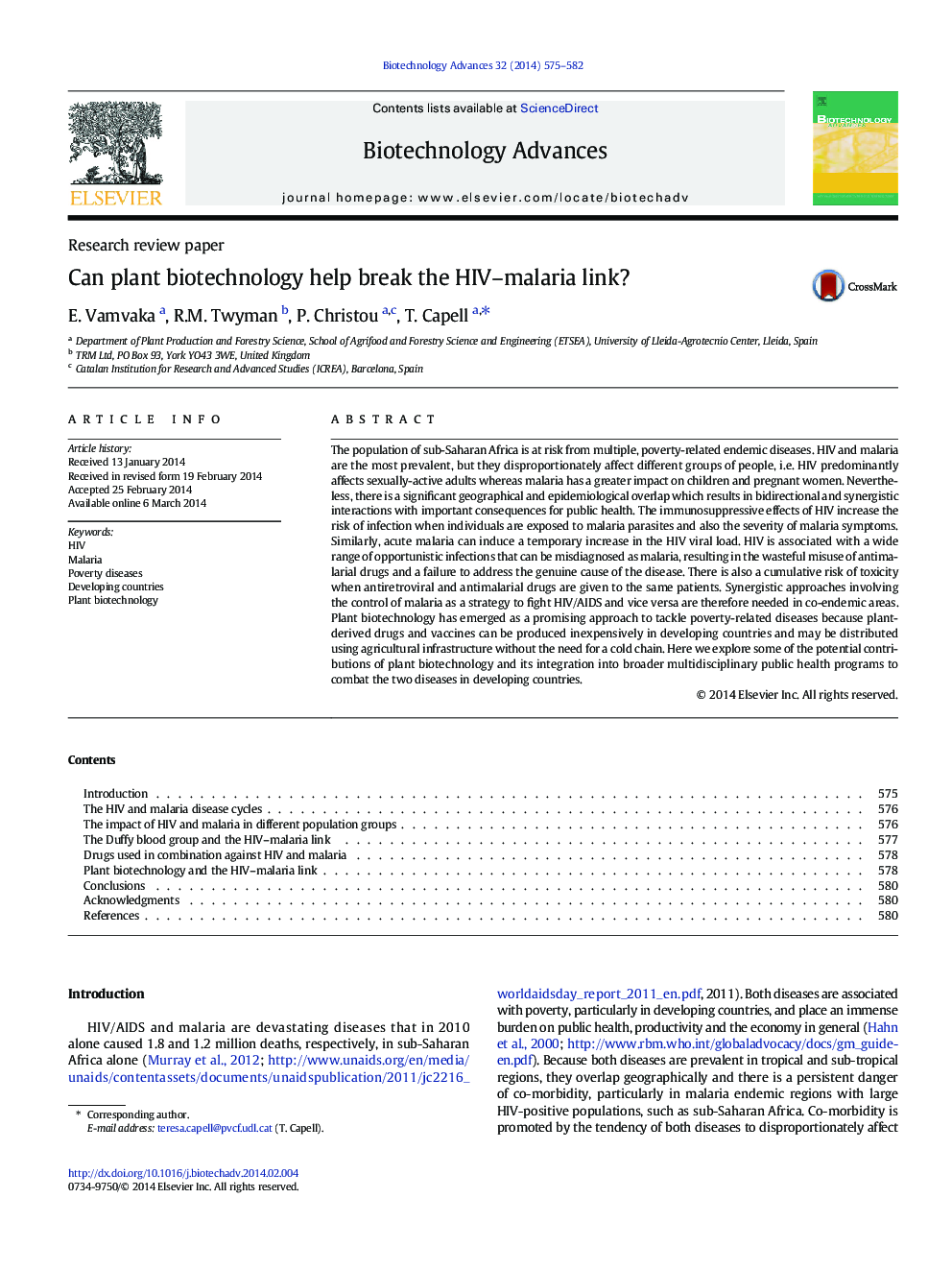| کد مقاله | کد نشریه | سال انتشار | مقاله انگلیسی | نسخه تمام متن |
|---|---|---|---|---|
| 10231539 | 1207 | 2014 | 8 صفحه PDF | دانلود رایگان |
عنوان انگلیسی مقاله ISI
Can plant biotechnology help break the HIV-malaria link?
ترجمه فارسی عنوان
آیا می توان بیوتکنولوژی گیاهی را کمک کرد تا پیوند ویروس مالاریا را از بین ببرد؟
دانلود مقاله + سفارش ترجمه
دانلود مقاله ISI انگلیسی
رایگان برای ایرانیان
کلمات کلیدی
اچ آی وی، مالاریا، بیماری های فقر، کشورهای در حال توسعه، بیوتکنولوژی گیاهی،
موضوعات مرتبط
مهندسی و علوم پایه
مهندسی شیمی
بیو مهندسی (مهندسی زیستی)
چکیده انگلیسی
The population of sub-Saharan Africa is at risk from multiple, poverty-related endemic diseases. HIV and malaria are the most prevalent, but they disproportionately affect different groups of people, i.e. HIV predominantly affects sexually-active adults whereas malaria has a greater impact on children and pregnant women. Nevertheless, there is a significant geographical and epidemiological overlap which results in bidirectional and synergistic interactions with important consequences for public health. The immunosuppressive effects of HIV increase the risk of infection when individuals are exposed to malaria parasites and also the severity of malaria symptoms. Similarly, acute malaria can induce a temporary increase in the HIV viral load. HIV is associated with a wide range of opportunistic infections that can be misdiagnosed as malaria, resulting in the wasteful misuse of antimalarial drugs and a failure to address the genuine cause of the disease. There is also a cumulative risk of toxicity when antiretroviral and antimalarial drugs are given to the same patients. Synergistic approaches involving the control of malaria as a strategy to fight HIV/AIDS and vice versa are therefore needed in co-endemic areas. Plant biotechnology has emerged as a promising approach to tackle poverty-related diseases because plant-derived drugs and vaccines can be produced inexpensively in developing countries and may be distributed using agricultural infrastructure without the need for a cold chain. Here we explore some of the potential contributions of plant biotechnology and its integration into broader multidisciplinary public health programs to combat the two diseases in developing countries.
ناشر
Database: Elsevier - ScienceDirect (ساینس دایرکت)
Journal: Biotechnology Advances - Volume 32, Issue 3, MayâJune 2014, Pages 575-582
Journal: Biotechnology Advances - Volume 32, Issue 3, MayâJune 2014, Pages 575-582
نویسندگان
E. Vamvaka, R.M. Twyman, P. Christou, T. Capell,
